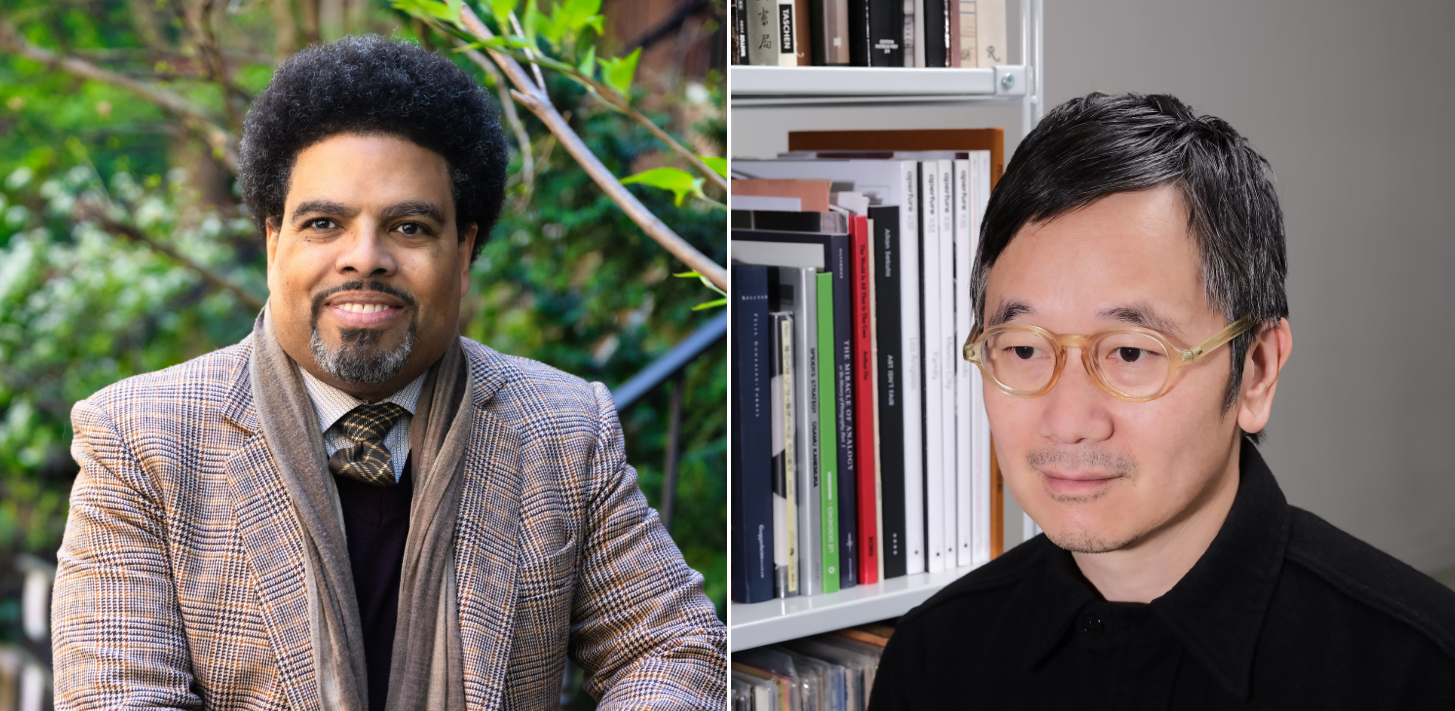
Arthur Ou, Professor of Photography, and Darrick Hamilton, Professor of Economics and Urban Policy, Awarded Radcliffe Fellowships
Every year, the Radcliffe Institute for Advanced Study at Harvard University accepts 50 scientists, writers, scholars, public intellectuals, artists, and more, into their Fellowship program, where they build on existing work, create relationships with the other Fellows, and develop new ideas.
This year, Arthur Ou, Professor of Photography at Parsons, and Darrick Hamilton, University Professor, Henry Cohen Professor of Economics and Urban Policy, and Founding Director of the Institute on Race, Power and Political Economy at The New School, were selected as Fellows.
“After 25 years of teaching, I am very excited to have this one-year opportunity to focus solely on my work,” shares Ou. “I look forward to being amongst the interdisciplinary cohort at Radcliffe which will challenge me to think broadly and expansively and open up my practice in new ways.”
“The Harvard Radcliffe Institute Fellowship is a tremendous honor—prestigious with a long history of remarkable projects emerging from it,” shares Hamilton. “The ability to spend an academic year with thinkers from across the academy and beyond, simply focusing on a project that could improve the human condition, is a privilege. I’m grateful to The New School for giving me the time to do it, and to the Harvard Radcliffe Institute for this great opportunity to develop a major project.”
During Ou’s time at Harvard, he plans to engage with resources including the Astronomical Photographic Glass Plate Collection at the university’s Observatory, as well as explore the Center for Astrophysics and the Perception area within the Psychology department in order to accelerate his research and image-making as he works on a book about the natural history of photography.
“I am particularly excited about the potential to incorporate what I will learn and discover at Radcliffe into the classroom and to bring a dynamic range of new perspectives and networks back to our university,” says Ou.
Hamilton plans to develop further insight and research into his vision of what a better economy would look like if people and the environments they live in are centered, and work on a book about that idea.